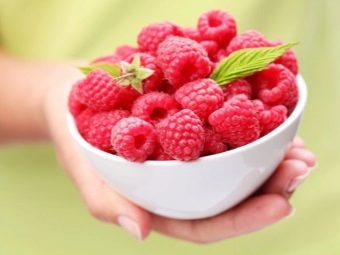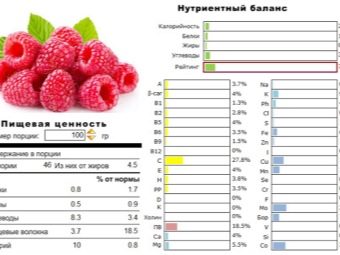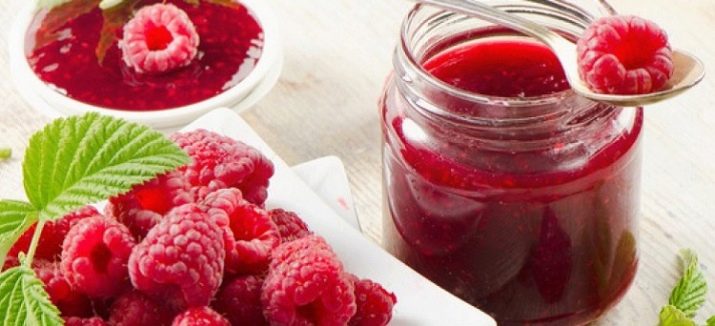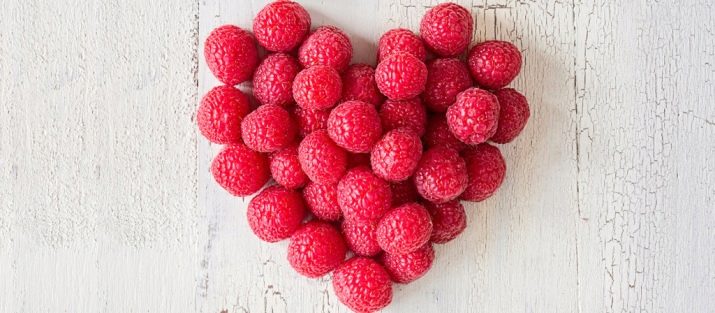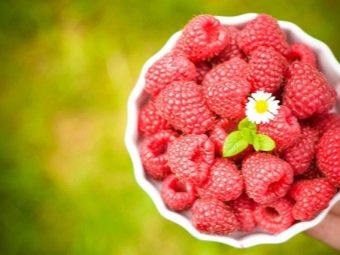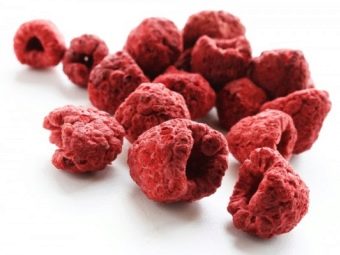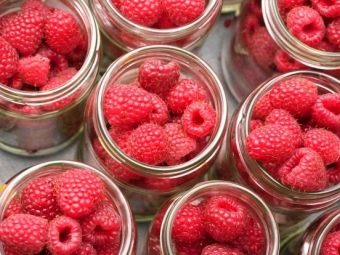Raspberry during pregnancy and breastfeeding: the benefits and harm
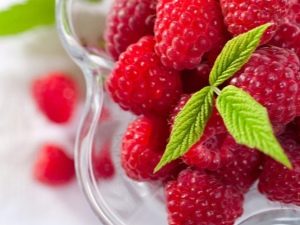
There is hardly a person who has not tried raspberries. This beautiful, juicy, fragrant berry is loved by everyone since childhood. It is known that there are many different vitamins and trace elements necessary for human health. However, when it comes to pregnancy, every product undergoes thorough research. After all, future mothers may encounter problems due to a particular product, even if this did not occur before pregnancy. Let's try to figure out whether raspberry is useful for pregnant and lactating women.
What is this berry?
Raspberries is a regular perennial shrub that belongs to the pink family. That is why there are so many needles on thin plant trunks. It can often be found in the wild forest, as well as in any garden, because almost every gardener considers it his duty to have such a berry on the plot. Shrub does not require special care, it is important only to water it additionally and remove dead stalks.
At the same time, the quantity and quality of the crop is always on top. The fruits of the shrub are used in various forms. They are consumed fresh, dried, frozen, boiled, added to fruit drinks and decoctions. Berries are used for making jam, jelly, marmalade, wine, tincture, liqueur, juice, desserts. In addition, for various purposes, still use the leaves and seeds of berries.
Composition
By the number of substances, it is the undisputed leader among the berries. It contains a large number:
- tannins;
- carotene;
- vitamins C, B, PP;
- pectin;
- coumarins;
- anthocyanins;
- glucose;
- fructose;
- sucrose.
It contains folic, ascorbic, salicylic acid. But the list does not end there. In raspberry there is cellulose, copper, potassium, iron, calcium, iodine.
Useful properties and contraindications
At all times, raspberry was considered a tasty delicacy and an effective anti-inflammatory agent. It was not for nothing that a jar of fragrant jam was taken in case someone caught a cold.
The sweet fruits of this shrub are useful for a healthy body, they are the prevention of various diseases.
In addition, they are suitable for those people who already suffer from:
- anemia;
- hypertension;
- leukemia;
- diseases of the gastrointestinal tract;
- of cardio-vascular system;
- metabolic disorders.
The benefits of raspberries when coughing, acute respiratory infections and colds and other types of inflammation are not questioned. 100 grams of fruit contains only 46 calories. It is not only extremely tasty and healthy delicacy, but also low-calorie. You can pamper yourself without fear of a figure.
Curative properties have juicy fruits and other parts of the shrub. Seeds are enriched with fatty acids, beneficial oils, sitosterol and phytosterol. In the leaves, twigs and inflorescences are ascorbic acid and phytoncids. Broths based on leaves and young shoots can be used for the prevention and addition to the treatment of many ailments.
Lotions of decoctions of the leaves help with various skin diseases (eczema, acne). They are relevant for rheumatism, hemorrhoids, inflammation of the eyes, scurvy. Teas and infusions are effective for poor appetite, nausea, loss of strength, high temperature. For women, the miracle berry is especially useful.
With its help you can deal with periodic ailments during the critical days. It helps to get rid of cramps, nausea and other unpleasant symptoms. Provides a tonic and sedative effect, regulates the menstrual cycle. However, many are plagued by doubts about the benefits of raspberries during pregnancy and during breastfeeding. After all, when it comes to a child, you must be extremely careful.
Reviews of future mothers and doctors are contradictory. However, to date, no scientifically proven case has been identified in which raspberry influenced the development of a baby. Therefore, before proceeding to the peculiarities of the interaction of berries with the mother's body, we denote the general cases when these fruits are contraindicated in humans.
- Individual intolerance. If you are allergic to raspberries, you probably know about it since childhood. Its symptoms may be a rash over the whole body or its separate parts. In some cases, even anaphylactic shock or severe swelling is possible, which is life threatening. When you are not sure whether you have an allergy, you should not use the berry in large quantities.
- Diseases of the gastrointestinal tract. These include ulcers and gastritis at any stage. Because shrub fruits contain a large amount of acids, they can cause irritation of an already damaged stomach lining.
- Abnormalities in the kidneys. Eating berries provokes a strong diuretic effect. Therefore, when jade and urolithiasis, it is better to limit the use of such a delicacy. The movement of kidney stones can cause colic and other unpleasant symptoms that make you feel worse.
- Low pressure. Raspberry berries can sometimes lower blood pressure. So, hypotensive should eat raspberries with caution.
- Bad blood clotting. Sweet fruits have a blood thinning effect. Keep this in mind if you suffer from reduced clotting.
- Gout. If you suffer from such a disease, then you know that products containing purine have a negative effect on the body, aggravating the existing violations.
During gestation
During pregnancy, the woman's body is completely rebuilt. Other feelings, sensations and preferences arise. Many believe that the future mother at the level of instincts understands what she can eat and what can not.
However, do not treat this so simply. After all, if a woman adored certain products before pregnancy, it’s not at all a fact that with the advent of the embryo she did not have allergies to them.
In the early stages
During the first trimester of pregnancy should be especially careful. After all, it is at this time that a new life is formed and is born, and the beginning of the development of all the organs of the child that are important for the life is given. During the second and third trimesters, all this is already being improved. The baby's heart starts to work, he can already move and continues to grow rapidly.
In the early stages of child development, it is important to avoid any disease, it is necessary to pay attention to your health. And if a woman has the opportunity to eat fresh raspberries, it is just wonderful. Ripe and healthy berries, presented by nature, are much better than vitamins and tablets from the pharmacy. There are a lot of vitamins and protein in ripe fruits - a building material for new cells, which is extremely necessary for the mother and future baby.
Folic acid, which is contained in raspberries, is indispensable during pregnancy. Gynecologists must prescribe it to women. If you have the opportunity to get it from the berries, it is only good. However, all this is good only if the fruits are fresh, picked in season. After all, products from modern supermarkets sometimes lack nutrients, but they are harmful. You need to be extremely careful.
It is better to wait for the summer season and feast on without fear. Raspberry helps to cope with toxicosis, which is especially important during the first trimester of pregnancy.
Many women do not want to take pills or other medications while carrying a baby, but you want to get rid of unpleasant symptoms. Therefore, be sure to take note of such a way.
On late terms
At this time, the risk of harming the child is much lower, women are no longer so severely limited in the choice of products. Now it is important for a woman to maintain her health in a stable condition so that she can easily carry the child until the end of the term. And here some are faced with a common misconception about raspberries. As if a large amount of eaten berries can cause a reduction in the uterus, which can lead to miscarriage or premature birth.These opinions are not confirmed by medicine, you can not take them seriously.
Some experts of alternative medicine attribute the listed properties to another berry - Kalina. They recommend to exclude it from the diet of the expectant mother. Another raspberry helps to cope with constipation. And this problem occurs quite often in women in the later stages of carrying a child.
Also, do not forget that in raspberries there is a large amount of calcium, which is extremely important for the development of bones and skeleton of the baby. Another sweet berry helps to remove excess liquid from the female body. It is especially necessary in cases when pregnant women have severe swelling of the extremities. This affects not only the appearance of the future mother, but also facilitates the work of the kidneys, is a means of combating obesity and varicose veins.
Raspberries can be eaten by pregnant women, especially when they are “pulled” onto it, but on condition that the pregnant woman is not allergic to this berry. Remember the golden rule: everything is good in moderation. You can not eat raspberries in large quantities. If you do not know whether you have any intolerance to these berries, then eat a few fruits to begin with. Then wait at least four hours and on the basis of such an experiment, draw conclusions about whether you can eat it or not.
Before giving birth
If the term of delivery is already approached, but they do not start, you can drink a decoction of raspberry leaves. It is believed that such a drink helps to soften the ligaments around the birth canal and help eliminate the delay. This also means that in the early stages of pregnancy such a decoction cannot be taken. Do not remember him earlier than a couple of months before the preliminary date of birth. However, not all so simple. Raspberry berries can worsen blood clotting. So, do not eat them on the eve of childbirth. Indeed, then the risk of large blood loss will increase significantly, which is unacceptable.
For nursing mothers
There is an opinion that when breastfeeding should refuse from any products that are red, because they are supposedly capable of causing allergies. However, in the case of raspberries, this is a delusion. To avoid undesirable consequences during the period of HB (breastfeeding), begin to introduce berries into your diet gradually, no more than a few berries per day. Need to start with one.
It is desirable that the baby at this time was already more than two months. At the same time carefully look at the condition of the baby's skin, as well as the contents of the diapers. If there are no problems with lactation and the health of the child, do not deny yourself the pleasure of enjoying the fresh and healthy fruits. However, with all the desire, dose them, this is important.
Application and Recipes
There are several recipes for using raspberries.
Tea
Prepare a delicious and fragrant drink is not difficult. To do this, add to your favorite black or green tea a couple of tablespoons of raspberries, rubbed with sugar, then mix thoroughly. This tea is great for colds, as well as coping with nausea and dizziness in early pregnancy.
Dried Fruit Drink
For this recipe, you need 2 tablespoons of pre-dried berries. Rinse them thoroughly, pour boiling water over them and pour them with a glass of hot water. Boil the drink for about 5 minutes, and then insist in the kettle for 10 minutes under a towel. Cool the broth a little, add some honey and enjoy the wonderful taste.
Leaf decoction
Pour 2 tablespoons of dried raspberry leaves with 400 ml of boiled water, draw liquid for at least 10 minutes. Immediately before childbirth (but not before), you can drink up to three cups a day of such a drink to relax the channel and prepare for the matchmaking.
Berries can be used to make compotes like from dried fruits. They make delicious jelly, fruit drinks. It is not recommended to abuse raspberry jam during pregnancy, because it is very high in calories, you can contribute to weight gain. And this may complicate childbirth.
Tips
In conclusion, we can note several recommendations which should be taken into account if you want to eat raspberries during pregnancy.
- During the first trimester, it is recommended to eat no more than 200 grams of fresh berries, during the second and third trimesters - 400-600 grams.
- Fruits should be dry, clean, evenly colored, without signs of rotting.
- The optimal shelf life of fresh berries is no more than three days.
- Berries should be grown in an ecologically clean place, away from roads and dumps, without the use of nitrates and chemical additives.
If the baby’s body reacts to a change in milk, brew a weak raspberry tea. Gradually increase concentration. So you gradually accustom him to this berry, and at the same time eliminate allergies that can harm him.
For information on how to use raspberry leaves for light childbirth, see the following video.

